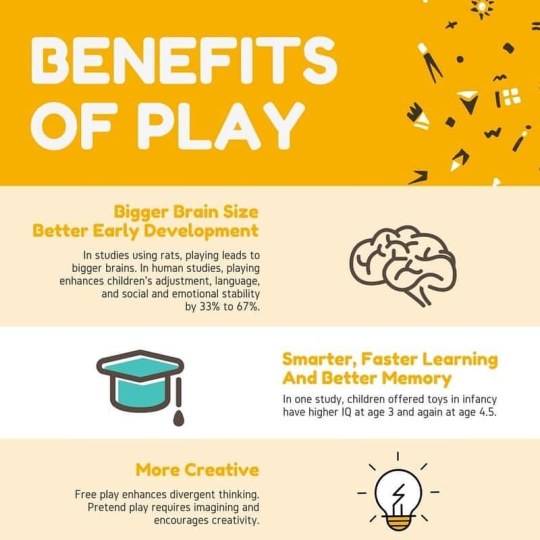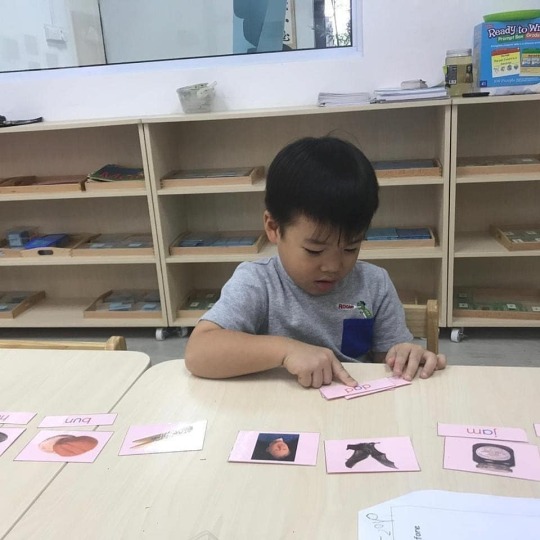#MontessoriCurriculum
Text

"Unlock your child's potential with a foundation built on curiosity and creativity at Cambridge Montessori Preschool, where learning knows no limits. Enroll now for a journey of discovery!"
@cambridge.montessori.10
#CambridgeMontessori#PreschoolAdmissions#NaviMumbaiEducation#KhargharPreschool#Sector21Kharghar#MontessoriEducation#EarlyChildhoodEducation#NaviMumbaiSchools#AdmissionsOpen#KhargharParents#MontessoriMethod#2024Admissions#CambridgePreschool#FutureReadyKids#ChildDevelopment#LearningThroughPlay#KhargharLife#ParentingJourney#MontessoriCurriculum#exploreandlearn
0 notes
Text
“The child has a mind able to absorb knowledge. He has the power to teach himself.”
~Dr. Maria Montessori | The Absorbent Mind, p. 5
parents and teachers are not directors, but careful preparers of the development, gentle guides and most importantly observers. they should not intervene a child's learning, especially when she made a mistake. simply observe and watch as the child do wonders
#MontessoriEducation#MontessoriLife#MontessoriMethod#MontessoriInspiration#MontessoriAtHome#MontessoriClassroom#MontessoriParenting#MontessoriMaterials#MontessoriTeacher#MontessoriCommunity#ChildLedLearning#MontessoriPreschool#MontessoriToddler#MontessoriActivities#MontessoriCurriculum#MontessoriPhilosophy#MontessoriPrinciples#MontessoriExploration#MontessoriPlay#MontessoriLearning
1 note
·
View note
Text
The Montessori Curriculum: A Comprehensive Approach to Learning
As parents, we all want our children to grow up with a love for learning and a thirst for knowledge. The Montessori method of education offers a comprehensive approach to learning that can help cultivate these qualities in your child. In this blog post, we'll take an in-depth look at the Montessori curriculum, its five pillars, and how it prepares children for life beyond the classroom. We'll also explore the advantages and disadvantages of this educational approach, as well as some alternatives you may want to consider. So let's dive into the world of Montessori education and discover what makes it such a unique and effective way of teaching young minds!
What is the Montessori Curriculum?
The Montessori curriculum is based on the teachings of Dr. Maria Montessori, an Italian physician and educator who developed a child-centered approach to learning in the early 1900s. At its core, this educational method emphasizes self-directed activity and hands-on learning, allowing children to follow their interests and work at their own pace.
One of the hallmarks of the Montessori curriculum is its focus on developing practical life skills, such as pouring liquids or tying shoelaces. This helps build independence and self-confidence in young children while also fostering a sense of responsibility.
Another key aspect of Montessori education is the use of specially designed materials that encourage exploration and discovery. These materials are carefully chosen to allow for multiple levels of challenge, ensuring that each child can progress at their own rate.
In a Montessori classroom, you'll typically find mixed-age groups where older students mentor younger ones. This allows for collaboration and peer-to-peer teaching opportunities that promote socialization and community building.
The Montessori curriculum provides a unique approach to education with an emphasis on individualized learning experiences tailored to each child's needs.
The 5 Pillars of the Montessori Curriculum
The Montessori Curriculum is centered around five key pillars that aim to foster independence, creativity, and critical thinking skills in children. These pillars are:
1. Practical Life Skills: This pillar focuses on developing a child's ability to take care of themselves and their environment through activities like washing dishes or sweeping the floor. These tasks help build coordination, concentration, and attention to detail.
2. Sensorial Activities: The sensorial learning pillar emphasizes exploration through the senses, such as touch, taste, smell, sight and hearing. Activities include matching different textures or identifying scents which helps develop observation skills.
3. Language Development: In this pillar children learn how to read & write by using phonics based approach with movable alphabet that makes it easier for them to decipher words rather than memorizing them.
4. Mathematics: Mathematics in Montessori curriculum introduces concepts gradually starting from concrete objects such as beads leading up to abstract numbers helping children understand mathematical principles better.
5. Cultural Studies: Cultural studies focus on geography; history of people around the world; natural sciences (botany,zooology) exposing kids towards diverse cultures & ecosystems helping create global awareness.
These five pillars work together cohesively in order to offer a comprehensive education experience for young learners within an inclusive environment where every child can progress at their own pace while building important life-skills along the way.
How the Montessori Curriculum Prepares Children for Life
The Montessori curriculum is designed to prepare children for life in a comprehensive manner. One of the ways it achieves this goal is by fostering independence and self-discipline. In a Montessori classroom, children are encouraged to make choices about their learning activities and work at their own pace, which helps them develop decision-making skills and autonomy.
Another way the Montessori curriculum prepares children for life is by promoting social skills development. The mixed-age classrooms encourage cooperation, communication, empathy, respect and consideration among students of different ages and backgrounds.
In addition to promoting independence and social skills development, the Montessori curriculum also emphasizes hands-on learning experiences that foster creativity, critical thinking and problem-solving abilities. This approach allows students to learn through exploration rather than memorization or passive listening.
Moreover, practical life activities such as cleaning up after themselves or preparing snacks give students an opportunity to practice real-life skills that they will need throughout their lives. Such activities also enhance gross motor abilities like coordination while fine-tuning other physical capabilities required in everyday routines.
The Montessori curriculum prepares children for life by emphasizing independent thinking & problem-solving techniques alongside fundamental physical abilities necessary for daily survival tasks with ease; these qualities stay relevant even after leaving school into adulthood
The Montessori Curriculum in Action
The Montessori Curriculum in Action is an amazing sight to behold. Unlike traditional schools, the Montessori approach emphasizes child-led learning where children are empowered to explore their interests and learn at their own pace.
In a typical Montessori classroom, you will see children engaged in hands-on activities like pouring beans or sorting buttons. These activities may seem simple, but they serve a purpose beyond just keeping the kids busy. Each activity has been carefully designed to teach specific skills such as hand-eye coordination or concentration.
You'll also notice that there's no one-size-fits-all approach in a Montessori classroom. Children are given individualized lessons based on their unique needs and abilities. This means that if a child excels in math, they can move ahead while still receiving support and guidance from their teacher.
Another hallmark of the Montessori Curriculum in Action is peace and orderliness. The environment is carefully prepared to promote calmness and focus among students. Students learn how to respect each other's space, take turns using materials, and work collaboratively with others.
Witnessing the Montessori Curriculum in action is truly inspiring as it shows us what education could look like when we put children first and adopt a more holistic approach to learning.
Pros and Cons of the Montessori Curriculum
The Montessori Curriculum has several advantages, one of which is the emphasis on hands-on learning. This approach encourages children to explore and engage with their environment, fostering a natural curiosity that can lead to a lifelong love for learning.
Another benefit is the focus on individualized instruction. In Montessori classrooms, each child's unique interests and abilities are taken into consideration during lesson planning. This ensures that students receive tailored education experiences suited to their specific needs.
However, there are also some drawbacks to consider when deciding if the Montessori Curriculum is right for your child. One potential issue lies in its reliance on self-directed learning; some children may struggle without clear expectations or structured guidance from teachers.
In addition, parents should be aware that tuition costs at Montessori schools can sometimes be higher than those of traditional public schools due to smaller class sizes and specialized materials required for this educational model.
It's important to recognize that not all educators are trained in the Montessori method; therefore, finding qualified teachers could prove challenging depending on your location.
Alternatives to the Montessori Curriculum
While the Montessori curriculum has been gaining popularity in recent years, it's not the only approach to learning. There are several alternatives that parents may want to consider when selecting an educational program for their child.
One alternative is Waldorf education, which emphasizes creativity and imagination. This approach is based on the teachings of Rudolf Steiner and incorporates a holistic view of education that includes art, music, storytelling and movement.
Another option is Reggio Emilia, an Italian-based approach to early childhood education that focuses on project-based learning. Students work collaboratively with teachers to explore topics of interest and develop problem-solving skills.
For those seeking a more traditional academic focus, there's Classical Education. This approach draws from ancient Greek and Roman teaching methods and emphasizes grammar, logic, rhetoric as well as history, literature and mathematics.
Some parents may opt for homeschooling or online learning programs where they can tailor the curriculum to meet their child's individual needs.
Ultimately every family must decide what works best for them based on their unique circumstances but by exploring different approaches parents can feel confident in making informed decisions about their children's education.
Conclusion
The Montessori curriculum is a comprehensive and holistic approach to learning that has been proven effective for over 100 years. By focusing on the development of the whole child through hands-on experiences, self-directed learning, and individualized instruction, students are empowered to become independent thinkers and lifelong learners.
While there may be some drawbacks or challenges associated with implementing this approach in traditional classroom settings, it is clear that the benefits far outweigh any potential downsides. The Montessori curriculum provides children with an education that prepares them not only for academic success but also for personal growth and fulfillment.
For parents considering alternative educational options for their children or educators looking to explore new approaches to teaching, the Montessori curriculum offers a compelling option worth exploring further. With its focus on nurturing each child's unique interests and abilities while cultivating essential life skills such as problem-solving, critical thinking, communication, collaboration,and creativity - it truly embodies what education should be all about.
1 note
·
View note
Text
Best International Montessori School in Bangalore
In the Montessori Curriculum school, 5 Pillars of GMP
• Excelerate' Programme
• Multi-faceted Learning
• iPlay Programme
• iCare Programme
• Future Ready Programme
For more info, visit our website
0 notes
Photo

9 Amazing Benefits of Play in Child Development According to studies, playing is learning. Children learn through playing. The importance of play in early childhood cannot be underestimated because playing is essential to a child’s growth. 1. Stimulate Early Brain Development 2. Improve Intelligence 3. Spark Creative Thinking 4. Improve Communication, Vocabulary, and Language 5. Promote Impulse Control and Emotion Regulation 6. Grow Social Competence and Empathy 7. Better Physical and Mental Health 8. Teach Life Lessons 9. Strengthen Relationship with Caretakers and Peers 🌍 Learn More: https://www.adorabright.com/ 📞 Phone: (647) 883-6370 📬 Email: [email protected] 📍 Location: 2078 King Rd, King City, ON, Canada, L7B 1L1 #academicprograms #childcare # privateschool #socialskills #toddler #preschool #montessoricurriculum #daycare #elementary #aba #kingcity #kingcityontario #richmondhill #vaughan #auroraontario #newmarketontario (at King City, Ontario) https://www.instagram.com/p/CELBgIeh2UT/?igshid=vzol4d624mhj
#academicprograms#childcare#socialskills#toddler#preschool#montessoricurriculum#daycare#elementary#aba#kingcity#kingcityontario#richmondhill#vaughan#auroraontario#newmarketontario
0 notes
Photo

Camelot's Montessori program with a rigorous curriculum that is developed in-house and continually updated to engage your child. https://bit.ly/2TkygcQ #montessoricurriculum #childengagement #montessoricentre #montessoripreschooler #cameloteducare (at Singapore) https://www.instagram.com/p/B7SMY3ylWGZ/?igshid=nfjctz7nptd2
0 notes
Text
recently, I've been indulging in reading about montessori, the theory and its principles. I am in awe as I learn more and more about it, not only is it a more natural and personal form of education, it promotes respect and discipline while gently unleashing the child's potential. it is absolutely wonderful and I can't wait to learn more.
i'll share tidbits of what I read about montessori here <3
#when you are so passionate about a topic that you want to write a book about it#MontessoriEducation#MontessoriLife#MontessoriMethod#MontessoriInspiration#MontessoriAtHome#MontessoriClassroom#MontessoriParenting#MontessoriMaterials#MontessoriTeacher#MontessoriCommunity#ChildLedLearning#MontessoriPreschool#MontessoriToddler#MontessoriActivities#MontessoriCurriculum#MontessoriPhilosophy#MontessoriPrinciples#MontessoriExploration#MontessoriPlay#MontessoriLearning
0 notes